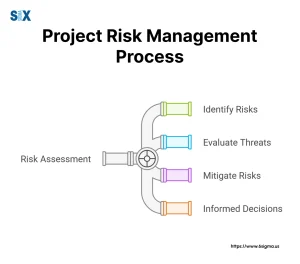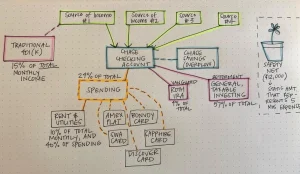
Options trading is a type of financial instrument in which the trader speculates on the price of an underlying asset. The trader has the opportunity, but not the constraint, to buy or sell shares of the underlying asset at a predetermined price before the expiration date. Options trading is a popular form of investing, providing traders with greater flexibility and leverage than traditional stock trading.
How does options trading work?
Trading options in Singapore involves buying and selling contracts that give buyers (holders) or sellers (writers) certain rights. For an options trade to be completed, two parties must agree to enter into a contract – one will take on the buyer role while another acts as a seller. A holder will purchase an option to make money from the contract, while a writer will enter into the contract in hopes of making money from the option. The buyer of an option pays the seller (writer) a premium for that right.
The most common type of options contract is known as a call option – this gives holders the chance to purchase shares of an underlying asset at a predetermined price before the expiration date. Put options give holders the opportunity, but not the constraint, to sell shares of an underlying asset at a predetermined price before expiry. These two types are commonly called “long” and “short” positions.
When it comes to options trading, traders consider several factors when deciding how to execute an order. This includes the type of option, the strike price, and the expiration date.
What is the strike price?
The strike price is the predetermined price at which a buyer can purchase or sell shares of an underlying asset for options trading. This predetermined rate will vary depending on market conditions, time, and volatility remaining until expiry.
A higher strike price means more risk to both sides in a transaction and potentially greater rewards should they be successful – it’s important to note that all options contracts are zero-sum games, meaning one side must win while the other loses. The strike price is also referred to as the exercise price.
What is the expiration date?
The expiration date is the final day a buyer and seller must complete the transaction. On this day, all buyers who have purchased options will have the chance, but not the constraint, to buy or sell shares of the underlying asset at the predetermined strike price. If an option is not exercised by the expiration date, it will expire worthless.
Furthermore, if the underlying asset’s price is not higher or lower than the predetermined strike price at the expiration date, neither side will benefit from the transaction. Lastly, most options are American-style, meaning they can be exercised before expiration.
What are the risks associated with options trading?
Options trading carries a greater risk than traditional stock investments, as the potential for loss increases with leverage. Additionally, options traders must understand the time decay associated with options contracts, meaning that the longer an option is held, its value will likely decline over time.
Furthermore, if a trader misjudges market conditions, they could incur more significant losses than expected. Another risk associated with options trading is that of assignment – if a trader’s option gets assigned, they could be forced to buy or sell shares of an underlying asset at the predetermined strike price; in some cases, traders may not have the funds to cover this expense.
In the end
Options trading can be a profitable way to make money if done correctly. Traders must consider factors such as the strike price and expiration date when deciding how to enter into contracts. Additionally, they should understand the risks associated with options trading, such as assignment and time decay, that could affect their strategies.
Finally, market conditions and underlying asset volatility are vital factors affecting returns from options trading and should be monitored closely. With the proper knowledge and understanding, traders can take advantage of opportunities provided by options trading and earn more returns on their investments.







